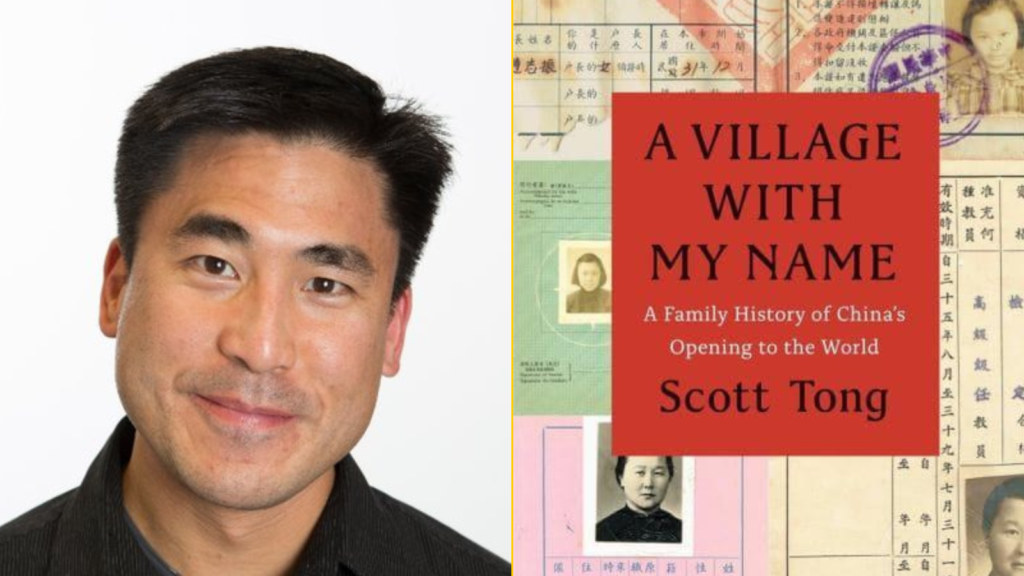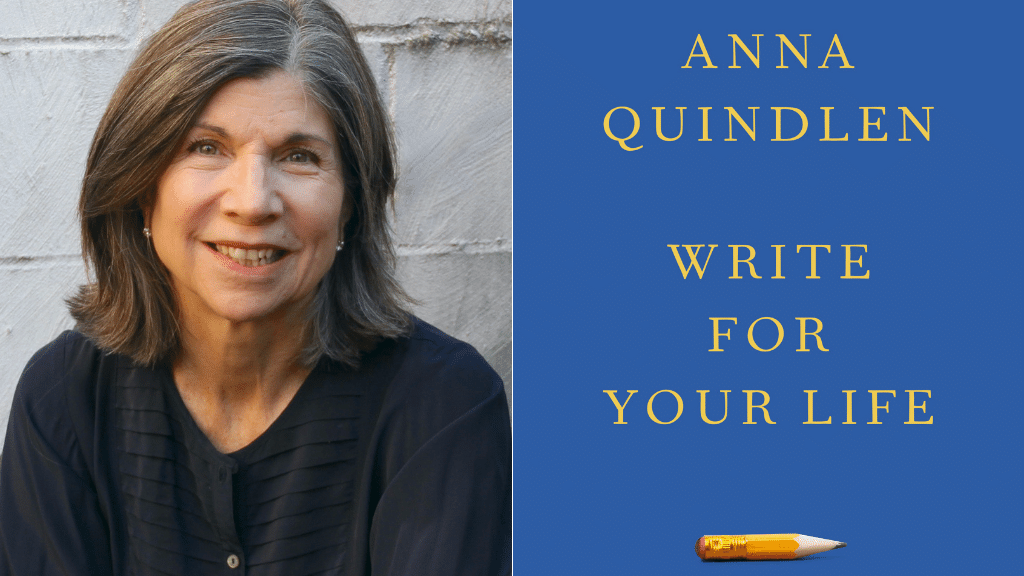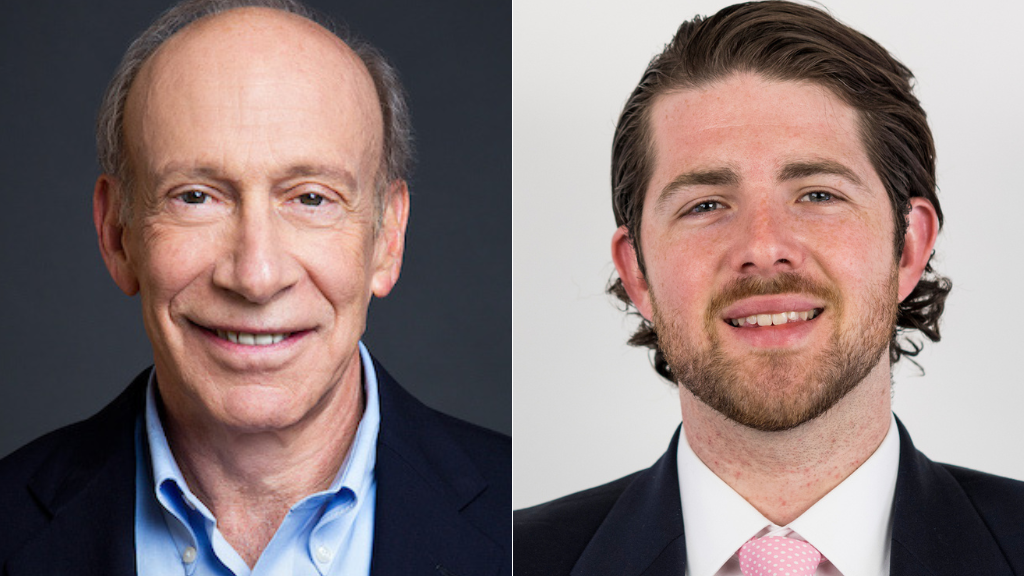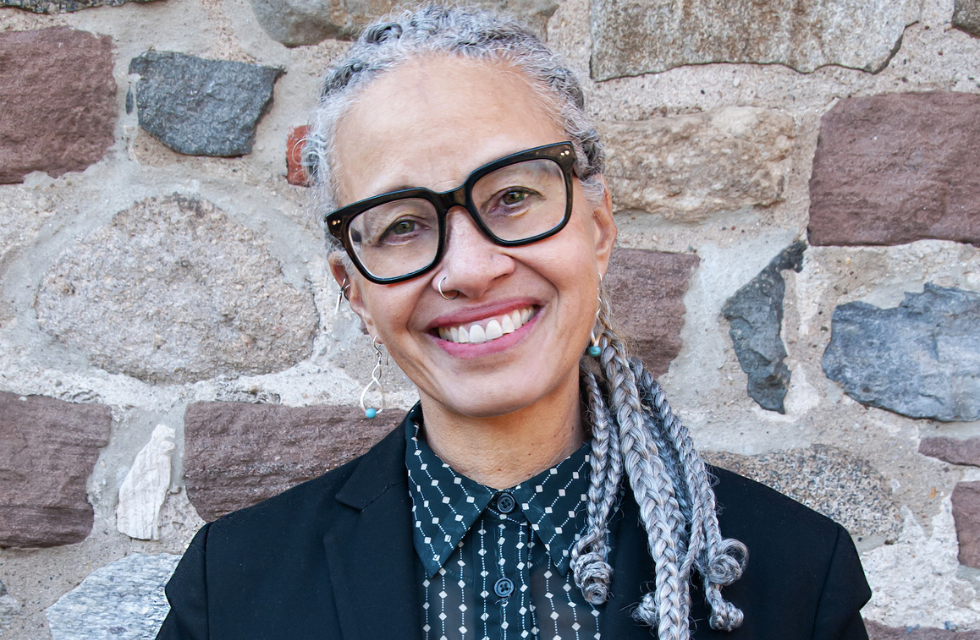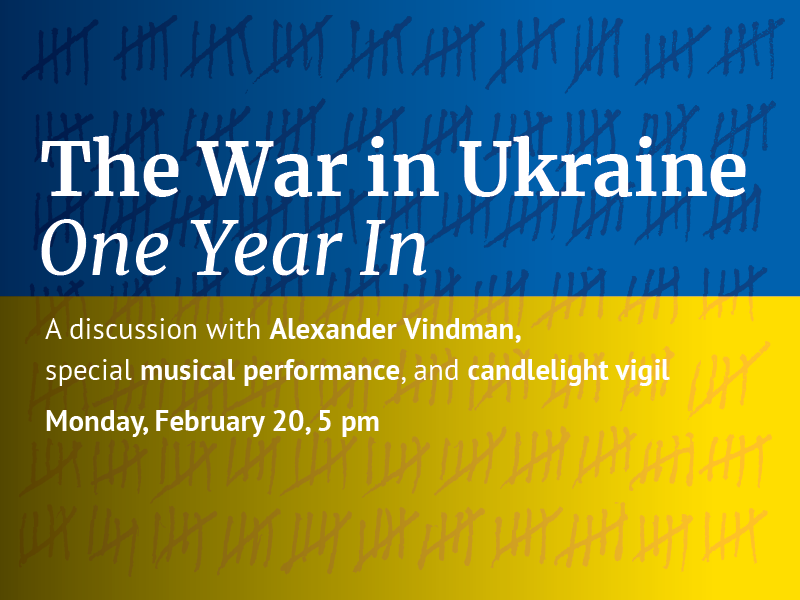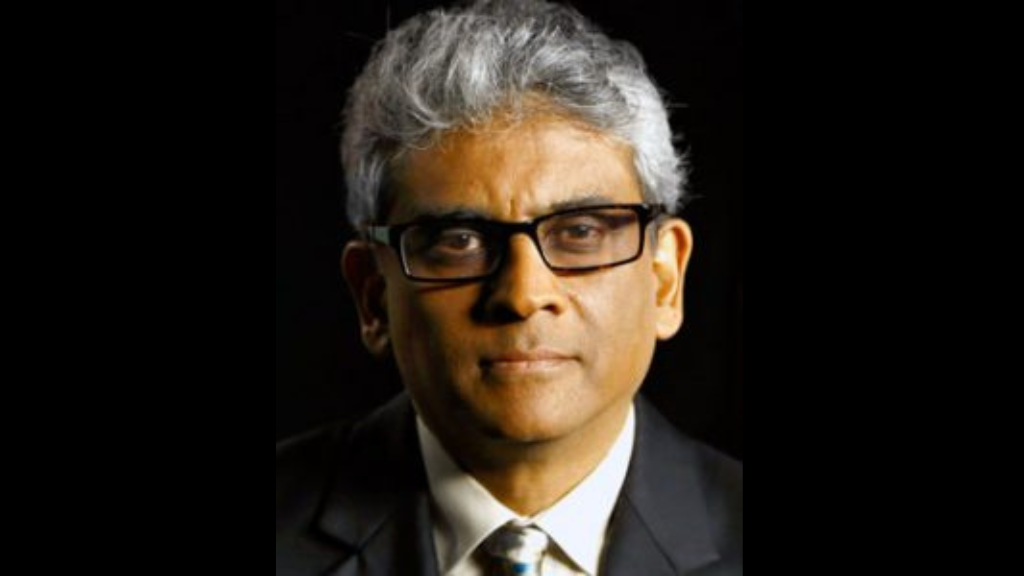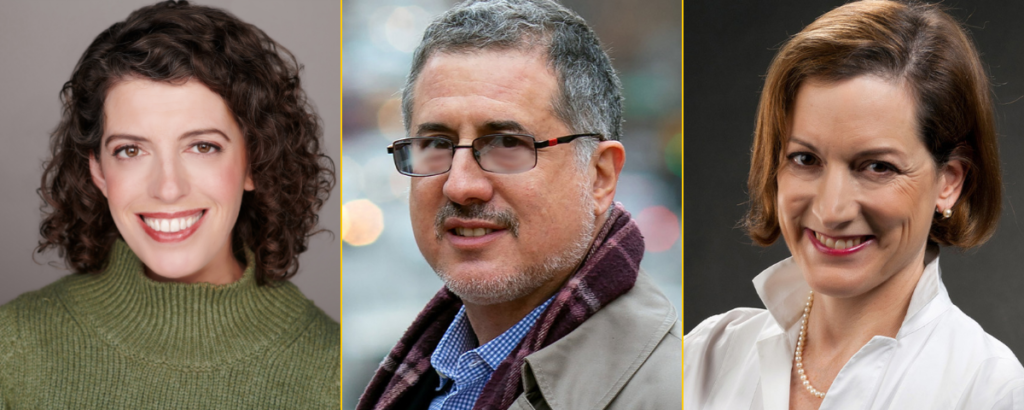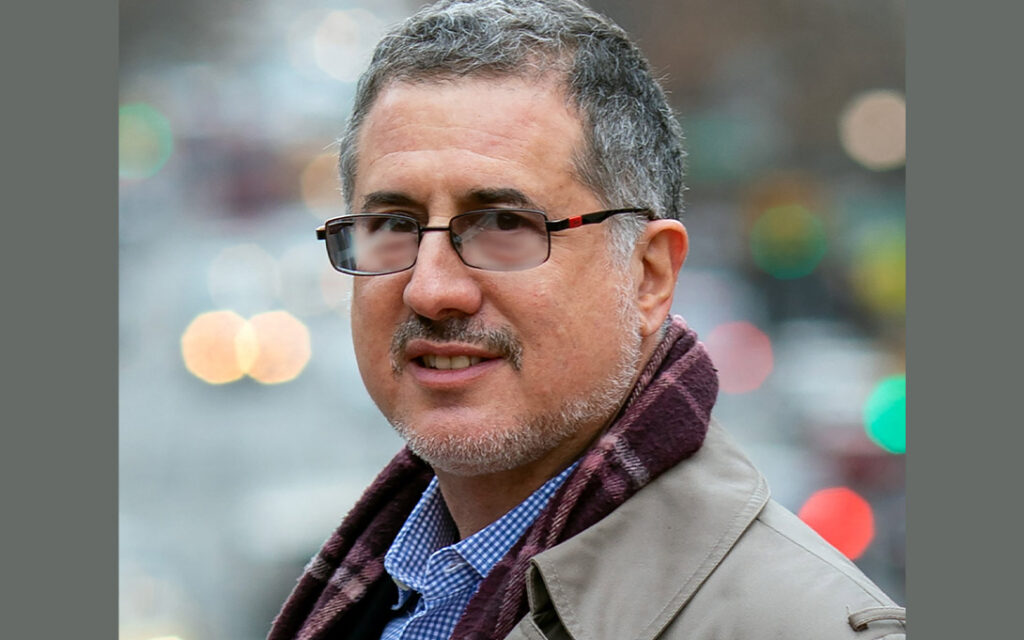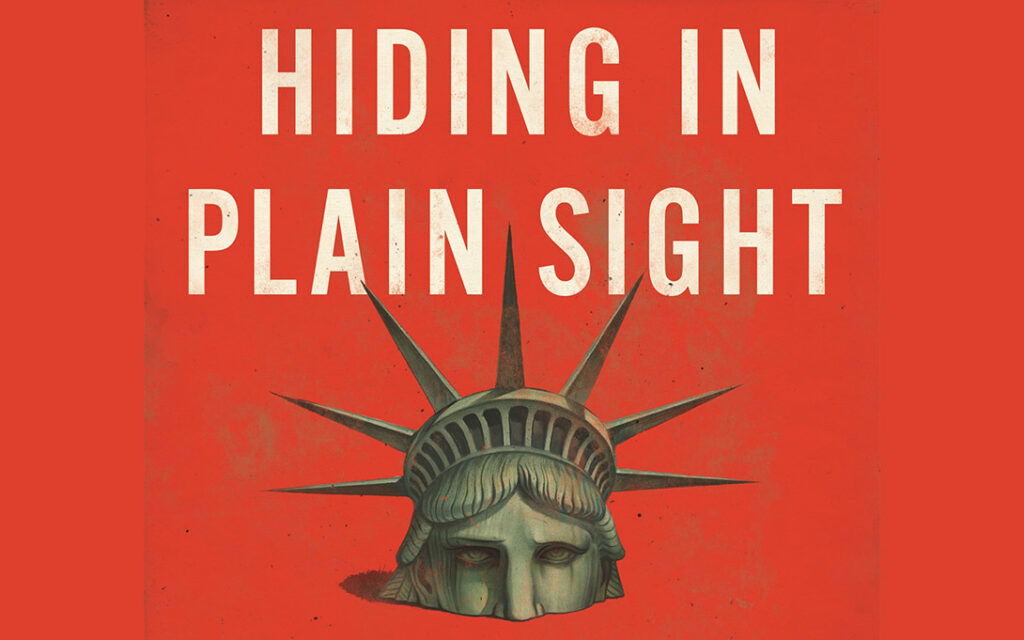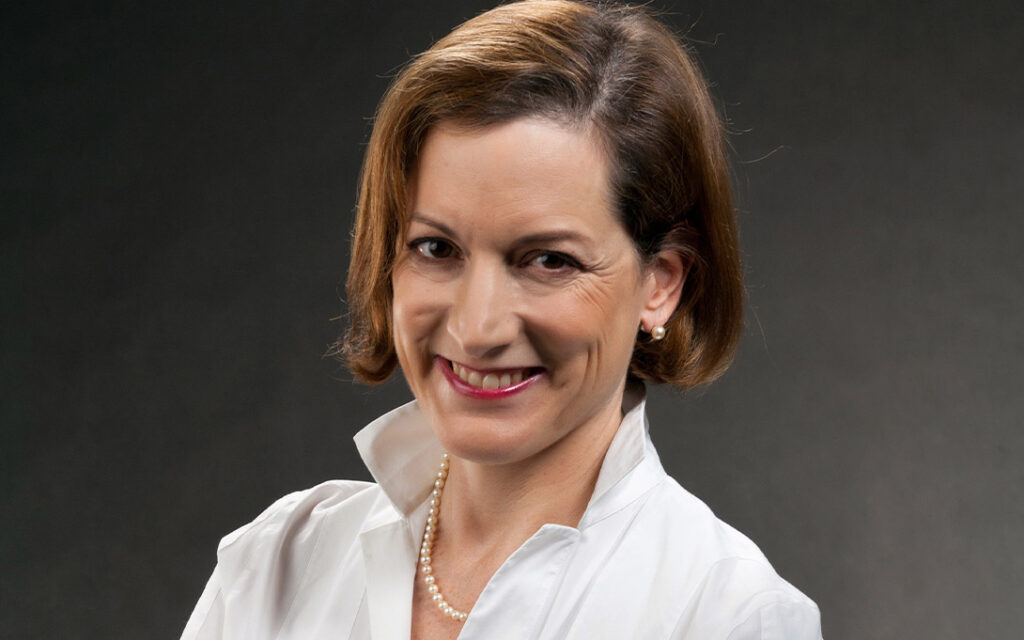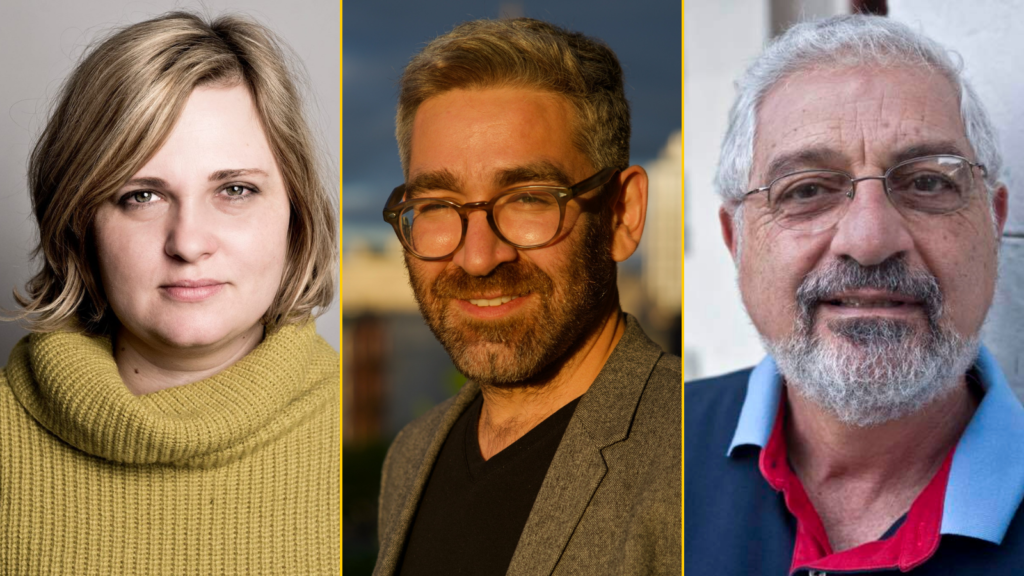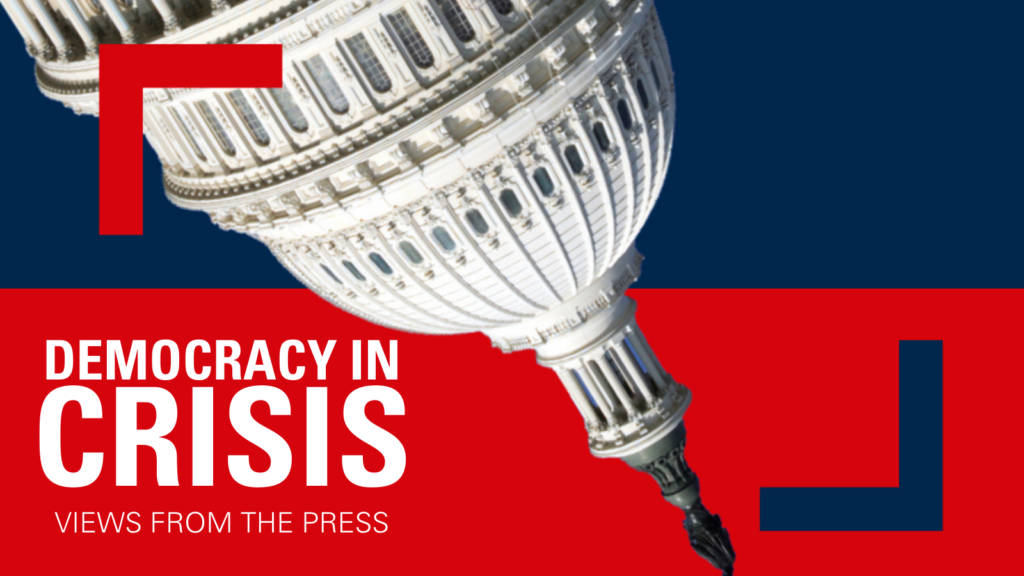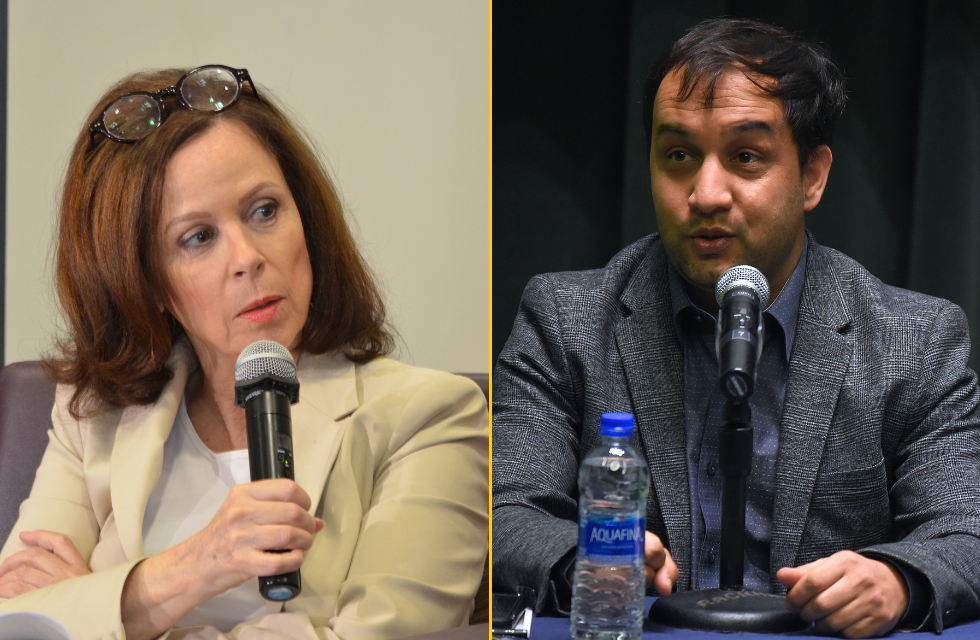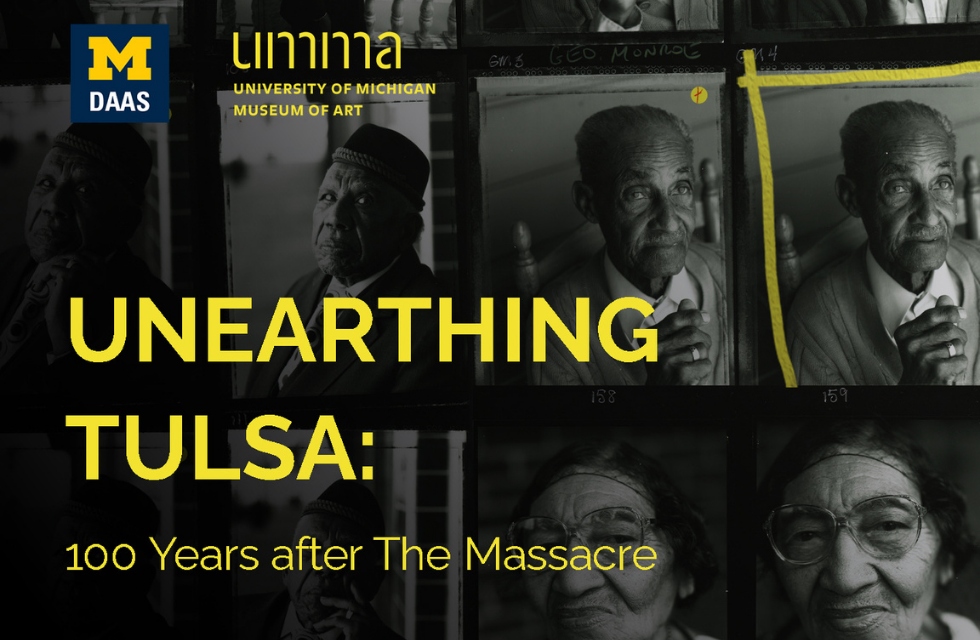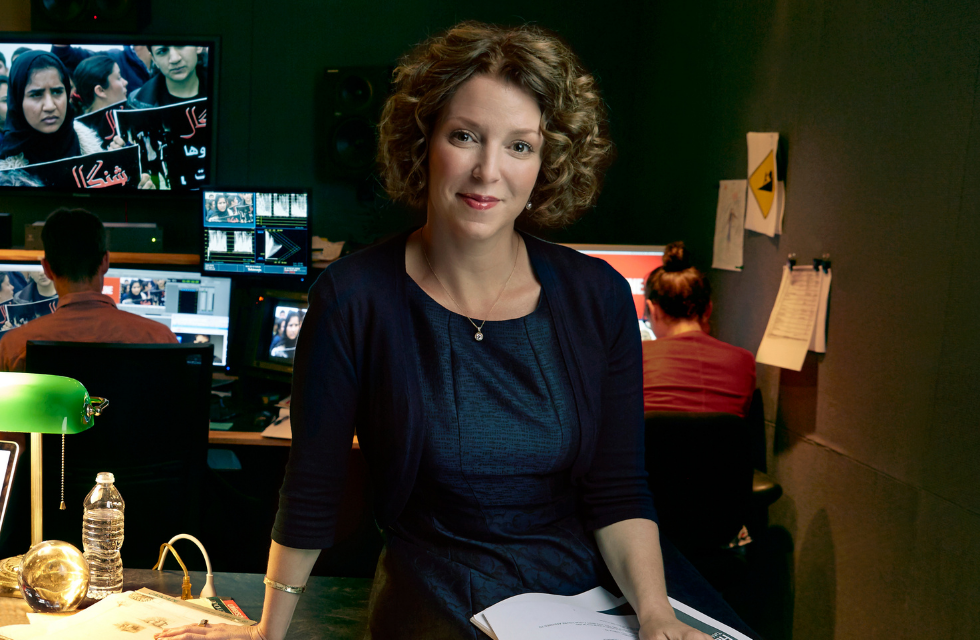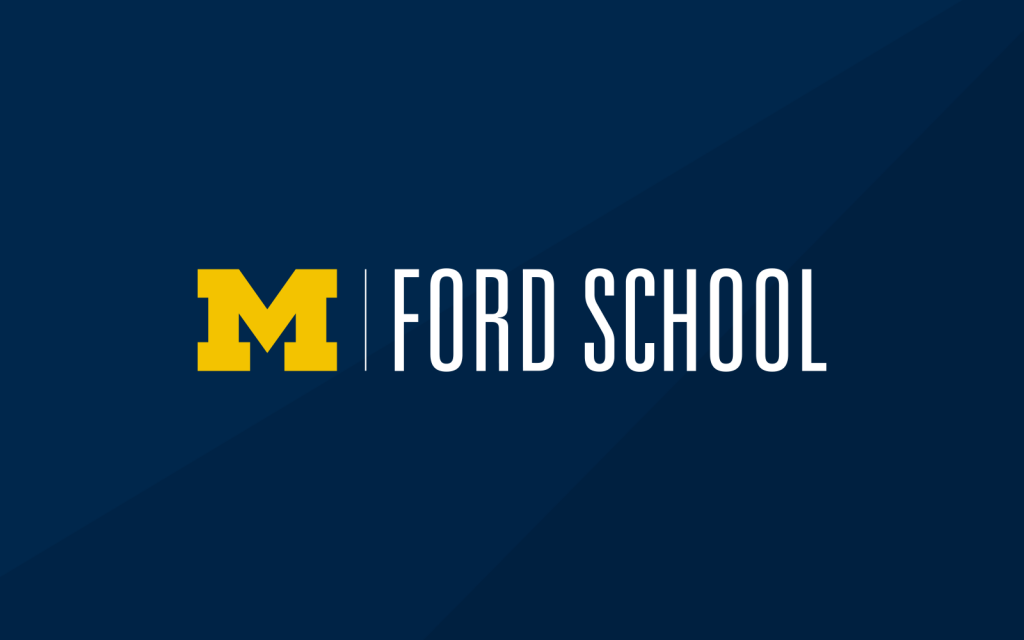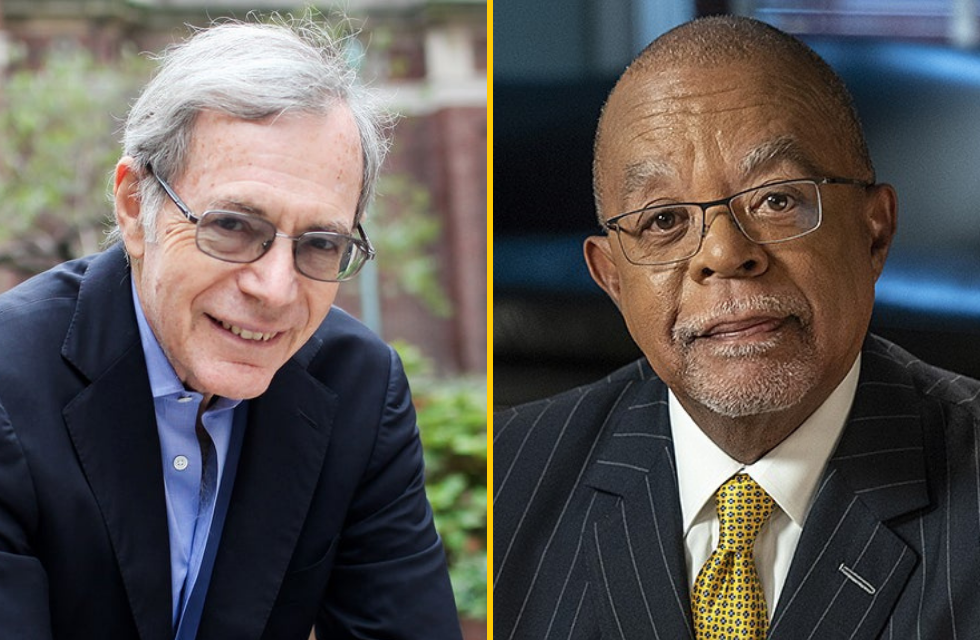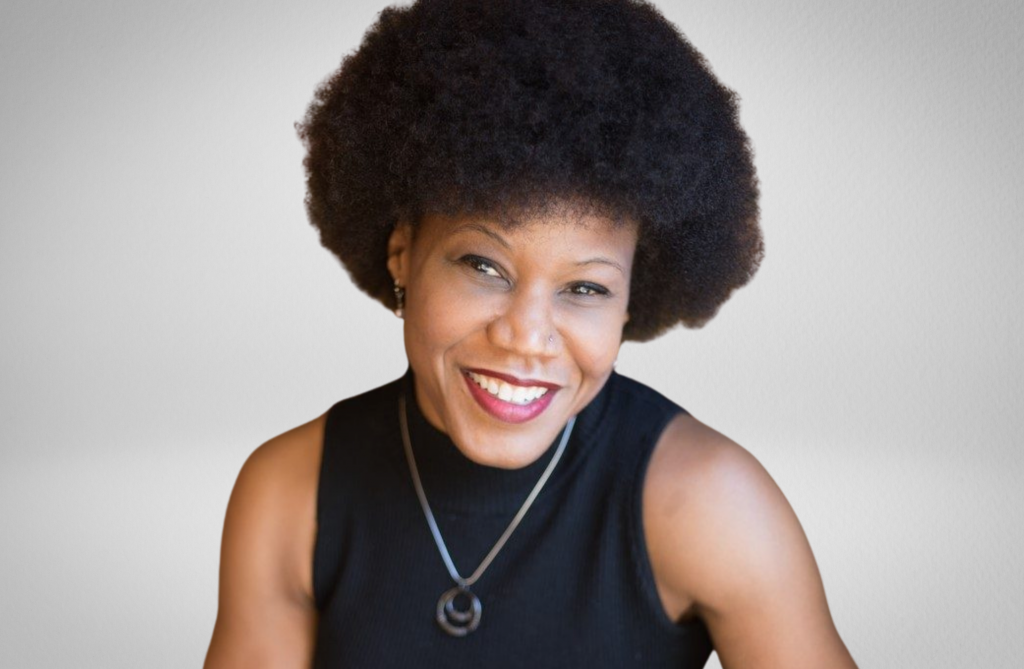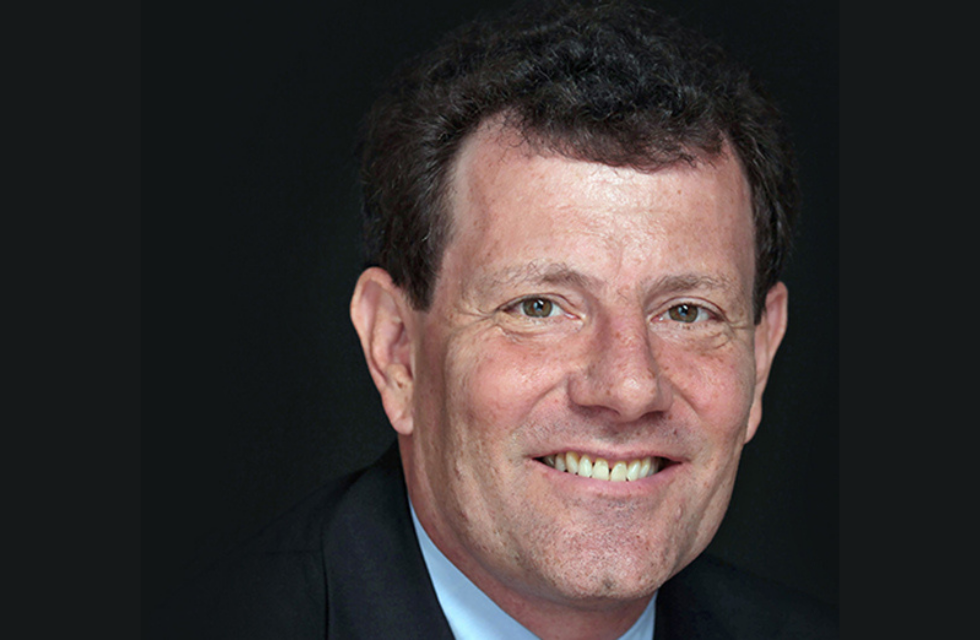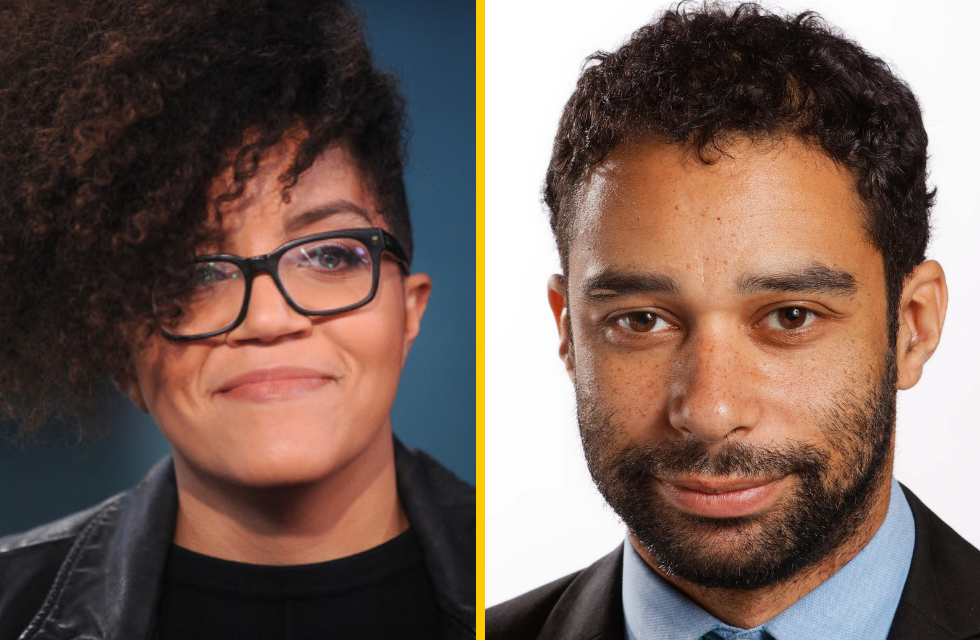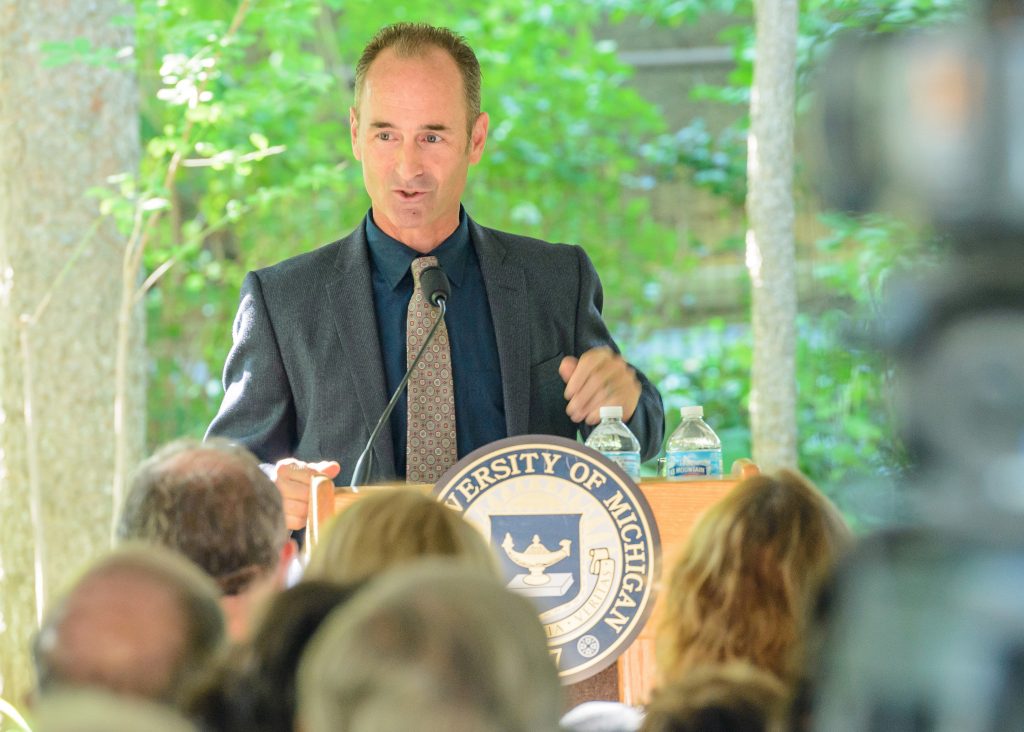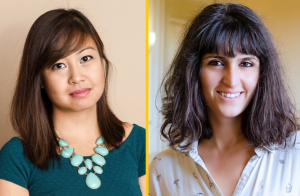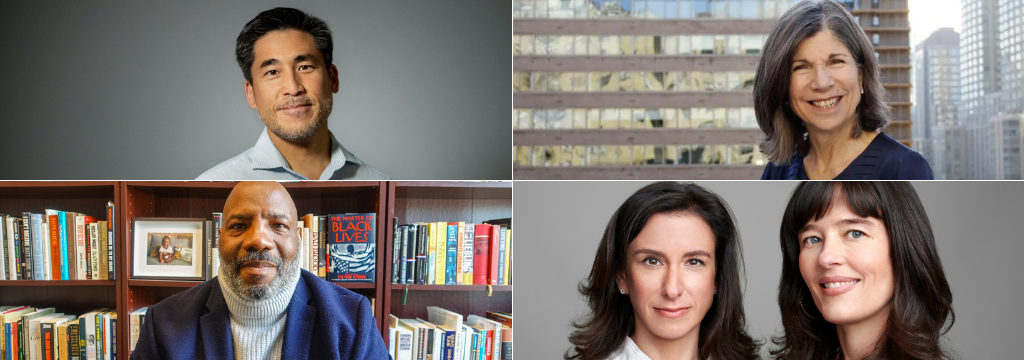
Wallace House Presents returns to campus this semester with live events, bringing Scott Tong, Anna Quindlen, Jelani Cobb, and a special movie screening and discussion with Jodi Kantor and Megan Twohey to our community. Please mark your calendars for the events below and join us.
The 35th Annual Hovey Lecture with Scott Tong of NPR’s “Here and Now.”
“China’s Paradox: Authoritarianism and Weakness”
5 PM | September 15, 2022
Reception following lecture
Wallace House Gardens, 620 Oxford Road
An in-person outdoor event
Free and open to the public.
Welcome remarks by Tabbye Chavous, Vice Provost for Equity and Inclusion and Chief Diversity Officer
In 2013, longtime China correspondent Scott Tong came to the Knight-Wallace Fellowships to research China’s on-again, off-again ties with the global community and how it connected with his own family. The resulting book, “A Village with My Name: A Family History of China’s Opening to the World,” examines nationalism and globalization through the stories of five generations of Tongs.
Now a co-host of “Here and Now,” Tong returns to Wallace House to discuss Beijing’s increasing authoritarianism and international aggression and what it means for its future and that of globalization.
This is an in-person event and will not be live-streamed. A video recording will be available on our website after the event.
More information about this event.
Michigan Radio is a co-sponsor of this event.
Best-selling author Anna Quindlen says recording our daily lives in an enduring form is more important than ever, urging all of us to pick up a pen and find ourselves. Join Anna Quindlen and Anne Curzan, LSA Dean and English Professor, for an in-person discussion about Quindlen’s book “Write for Your Life,” and learn how anyone can write and why everyone should.
This in-person event will also be live-streamed.
More information about this event.
Co-sponsors:
College of Literature, Science, and the Arts
Department of English Language and Literature
Detroit Public Television
Literati Bookstore
Michigan Radio
Ira Shapiro with Chris Marquette
“The Betrayal: How Mitch McConnell and the Senate Republicans Abandoned America”
6 PM ET | Monday, Oct. 24, 2022
An in-person event at Weill Hall, Betty Ford Auditorium, Room 1110
725 S. State Street
Free and open to the public
Register here
Join Ira Shapiro, author and former Hill staffer, and Chris Marquette, Knight-Wallace Fellow and congressional reporter, for a discussion on Shapiro’s new book, “The Betrayal: How Mitch McConnell and the Senate Republicans Abandoned America,” our current political climate, and the state of democracy in these fractious times.
Hosted by:
Gerald R. Ford School of Public Policy
Co-sponsors:
Alumni Association of the University of Michigan
Democracy & Debate
Special Screening of the feature film “She Said,” and conversation with Jodi Kantor and Megan Twohey
5:30 PM | Monday, Nov. 28, 2022
Michigan Theater
Purchase tickets: Michigan Theater
Free tickets for students: Michigan Theater
In October 2017, Jodi Kantor and Megan Twohey of The New York Times broke the story of Harvey Weinstein’s decades of sexual abuse allegations and ignited the #metoo movement. Meet the reporters behind the groundbreaking expose and watch the feature film, “She Said,” based on their book of the same name. The conversation with Kantor and Twohey will follow the movie screening.
This event will not be live-streamed. Wallace House and its co-sponsors will not receive any proceeds from ticket sales.
Co-sponsors:
College of Engineering
College of Literature, Science, and the Arts
Gerald R. Ford School of Public Policy
Office of Diversity, Equity & Inclusion
An MLK Symposium Event with Linda Villarosa
“Under the Skin: The Hidden Toll of Racism on American Lives and on the Health of Our Nation”
4:30 PM | Tuesday, Jan. 17, 2023
An in-person event
Annenberg Auditorium, Ford School

Watch a video recording of the event.
Wallace House Presents Linda Villarosa, journalist, educator and writer for The New York Times Magazine, as she examines racial inequities and bias in U.S. medical care and the devastating consequences on the health and well-being of Black Americans.
More information about this event.
THIS IS AN MLK SYMPOSIUM EVENT
Co-sponsor:
Center for Racial Justice
Jelani Cobb in conversation with Celeste Watkins-Hayes, Dean of the Ford School
“The Half-Life of Freedom: Notes on Race, Media and Democracy”
6 PM | Tuesday, Jan. 24, 2023
An in-person event at Rackham Auditorium
915 Washington Street
Free and open to the public
Watch a video recording of this event.
Wallace House Presents journalist and scholar Jelani Cobb, in conversation with Ford School Dean Celeste Watkins-Hayes, as part of the continuing series: “Democracy in Crisis: Views from the Press.” Watch Cobb, dean of Columbia Journalism School and staff writer for The New Yorker, as he examines race, historic challenges to democracy, the impact of the media, and how these inform our current moment.
More information about this event.
THIS IS AN MLK SYMPOSIUM EVENT
Co-sponsors:
Democracy & Debate
Gerald R. Ford School of Public Policy
Alumni Association
Ford School
Democracy & Debate
Alumni Association
With support from our media partners at Detroit Public Television (DPTV) and PBS Books
The War in Ukraine: One Year In
A discussion with Alexander Vindman, special musical performance and a candlelight vigil
5 PM | Monday, February 20
Rackham Auditorium and the Diag
February 24 marks one year since the full-scale Russian invasion of Ukraine. Ukrainian-born retired U.S. Army Lt. Col. Alexander Vindman, former Director for European Affairs for the United States National Security Council examines the current state of the war and its impacts on the Ukrainian people, the implications for global security, and prospects for peace and rebuilding.
Discussion moderated by Geneviève Zubrzycki, professor of sociology and WCEE Director, and John
Ciorciari, professor of public policy and director of the Ford School’s Weiser Diplomacy Center.
Featuring a special performance by members of the Ukrainian Bandurist Chorus of North America.
The event will conclude with a candlelight vigil on the Diag.
This evening is organized by the Weiser Center for Europe and Eurasia in partnership with the Center for Russian, East European, and Eurasian Studies; Department of Slavic Languages and Literatures; Ukrainian Club at U-M; Weiser Diplomacy Center; and Wallace House Center for Journalists.
Wallace House Presents CNN Anchor Chris Wallace and Governor Gretchen Whitmer as part of the continuing series: “Democracy in Crisis: Views from the Press.” Join this hour-long special event with Mr. Wallace and Governor Whitmer as they discuss politics, public service, the media, and the state of our democracy, with opening remarks by the University of Michigan President Santa Ono.
More information about this event.
A Journalism Symposium for Covering the Next Natural Disaster
An invitation for specialized training
9 AM – 5 PM | Thursday, March 9
Michigan League, University of Michigan
As natural disasters become more frequent and devastating, how can newsrooms better prepare for the reporting and operations challenges posed by these emergencies?
Covering Natural Disasters is a one-day symposium developed by current Knight-Wallace Fellow María Arce to bring together journalists, extreme weather experts, and emergency managers in a small group to discuss best practices for covering disasters and solutions to working with limited resources amid the destruction and tragedy of these events.
This symposium is an opportunity for editors, staff reporters, and freelancers to learn, connect and be better prepared to cover the next natural disaster with new skills and trauma-informed practices
Wallace House Presents Fred de Sam Lazaro, executive director of the Under-Told Stories Project and correspondent for the PBS NewsHour, as he takes a critical look at the world’s underreported events and awakens us to understand the daily concerns of faraway people who increasingly affect our lives. A 1989 Michigan Journalism Fellow (later named the Knight-Wallace Journalism Fellowship), de Sam Lazaro founded Under-Told Stories a journalism project focused on the consequences of poverty and the work of change agents addressing them telling stories about the world’s biggest challenges including climate, food and water, and human rights.
More information about this event.
The Eisendrath Symposium honors Charles R. Eisendrath, former director of Wallace House, and his lifelong commitment to international journalism.
This event is produced with support from Knight Foundation.

